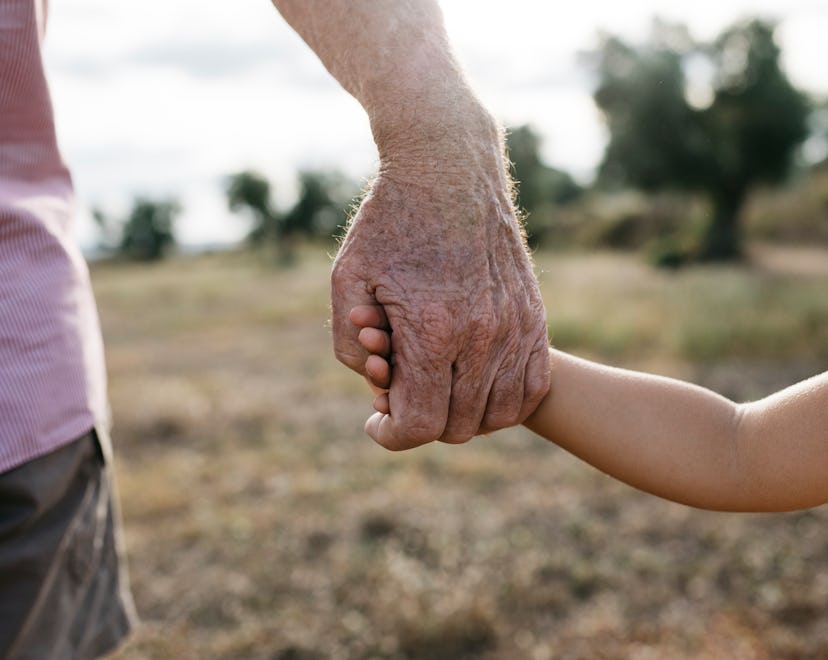News

Over 1 Million Children Have Lost Grandparents To Covid-19
“At this rate, one child is orphaned every 12 seconds.”
More than 4 million people have died from Covid-19, leaving behind grieving friends, relatives, and, in many instances, children. A new study estimates some 1.5 million children across the globe have already lost a primary or secondary caretaker as a result of Covid-19. What’s more, researchers warn that number will only continue to grow as the pandemic continues, effectively impacting millions of children in economic, developmental, and psychological ways.
“For every two people who die of Covid, one child is left orphaned, facing the death of a parent or grandparent caregiver who had been living in their home,” Laura Rawlings and Susan Hillis, two of the study’s co-authors wrote in a blog published by World Bank, an organization that partnered with the World Health Organization, the U.S. Centers for Disease Control and Prevention (CDC), the U.S. Agency for International Development (USAID), and others to complete the study. “By the end of June 2021, because of COVID-19, our estimates show that nearly 2 million children aged under 18 years have lost a mother, father, and/or grandparent caregiver who lived in their household.”
After analyzing mortality data and Covid-19 deaths in 21 countries, researchers estimated that, as of April 30, at least 1 million children around the world had lost a parent or primary caregiver as a result of the virus. Additionally, 1.5 million children were estimated to have lost either a parent/primary caregiver or custodial or co-residing grandparent. In the United States alone, 104,867 children were found to have lost a primary caregiver.
“At this rate, one child is orphaned every 12 seconds due to a COVID-19-associated death, and the toll is growing,” Rawlings and Hillis wrote. “The economic, developmental, and psychological impacts on these children will reverberate across generations, a tragic legacy of COVID mortality.”
Researchers warned that children who experience orphanhood as a result of the Covid-19 pandemic ultimately face a number of risks, including poverty, malnutrition, violence, depression, school dropout, child marriage, as well as displacement or separation from siblings or other close family members.
“Parents, guardians, and co-residing grandparents and other caregivers matter to the physical and mental health of children, to their socialization and participation in their communities, and to their protection,” the report noted. “Their deaths can be devastating.”
The death of a parent or primary caregiver often places a child at immediate risk of experiencing mental health issues such as depression, anxiety, or post-traumatic stress. These issues can then impact the child’s academic performance or lead to them dropping out of school entirely while also impacting the child’s overall self-esteem and leading to an increased risk of risky sexual behavior, the study warned. Additionally, the death of a parent or primary caregiver can also often represents the loss of a vital source of income, potentially jeopardizing the fulfillment of the child’s basic needs.
Rawlings and Hillis have urged governments and community leaders around the world to take action now to support children who are orphaned or experience the loss of a primary or secondary caretaker as a result of the pandemic. They recommended preventing as many Covid-19 deaths as possible through continued vaccine rollout, providing support to remaining parents and caregivers, and taking steps to prepare extended or foster families to take on orphaned children so as to avoid their institutionalization.
“Investments in children’s human capital today are essential to securing not only their future, but the future of their communities and countries,” the pair wrote. “These investments have high rates of return that accumulate over lifetimes, and from one generation to the next.”
If you think you’re showing symptoms of coronavirus, which include fever, shortness of breath, and cough, call your doctor before going to get tested. If you’re anxious about the virus’s spread in your community, visit the CDC for up-to-date information and resources, or seek out mental health support. You can find all of Romper’s parents + coronavirus coverage here.